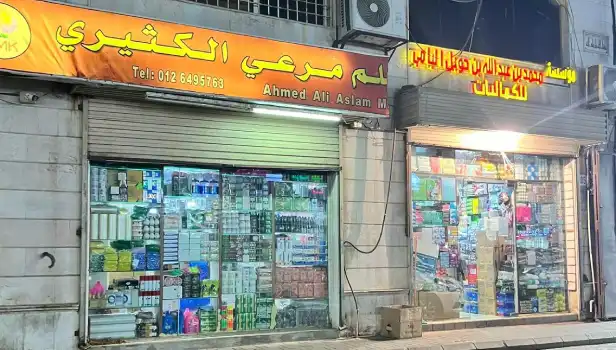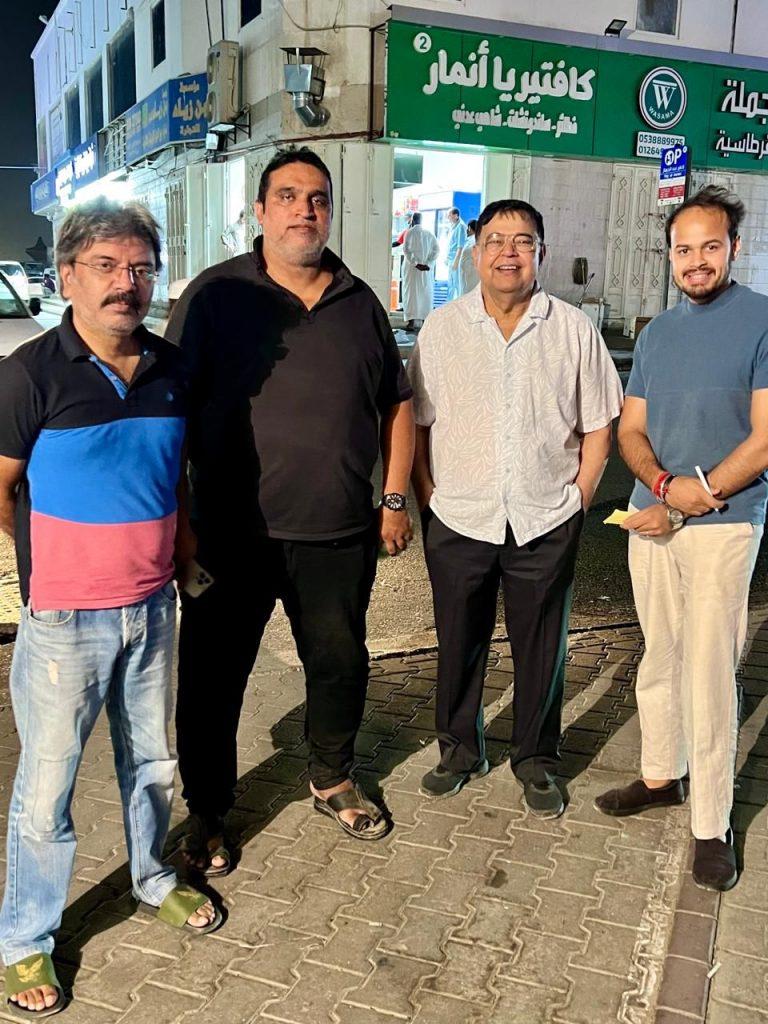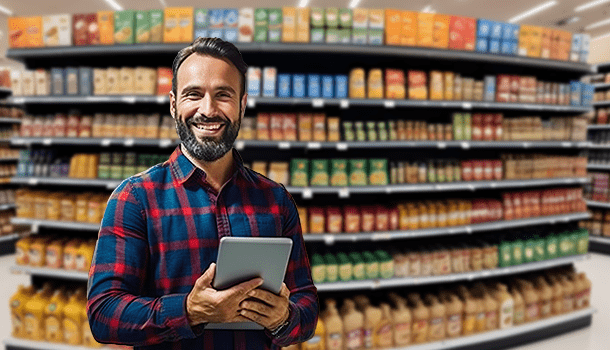Table of Contents
ToggleNavigating the Consumer Goods Market in Saudi Arabia – Opportunities for accelerated growth!
Is the world taking note of the Kingdom of Saudi Arabia’s (KSA) economic innovation?
Saudi Arabia, a leading player in the global oil market and home to about 3.7 million people, is undergoing a fascinating economic transformation. While oil remains a significant revenue stream, the country is strategically diversifying its development roadmap into a global investment powerhouse.
Under Saudi Arabia’s Vision 2030, the kingdom aims to attract more foreign investment, stimulate economic growth, and develop a more resilient economy. Central to this vision is the ambitious NEOM project, capturing global attention.
Located on one of the most prominent economic arteries connecting three continents—Asia, Europe, and Africa—NEOM aims to transform the Kingdom into a leading trade hub by introducing value chains of traditional and future industries and technologies to stimulate local industries, private sector job creation, and GDP growth.
Growing religious tourism, Aramco’s private investment, settlement abolishment, and the evolution of trade channels will significantly impact Saudi Arabia’s transforming economy, driving opportunities for non-oil sectors.
This blog highlights the current Consumer Packaged Goods (CPG) industry landscape in Saudi Arabia and its challenges, exploring the growth opportunities available in this sector.

The Saudi Economy – Disruption on the rise
By relaxing its norms, Saudi Arabia is opening its doors like never before, inviting visitors for business, religious tourism, and cultural experiences. As it prepares to host the 2034 FIFA World Cup, Saudi Arabia is set to welcome people worldwide.
It also plans to increase its capacity to welcome Umrah visitors from 8 million to 30 million annually. The country is also poised to raise more than $11.2 billion by selling shares in oil giant Aramco to help fund its expansion plans. Among their goals by 2030, the country plans to boost SME contribution to GDP from 20% to 35%.
Increasing urbanization, an inflow of religious tourism, ease of doing business, and a focus on economic diversification have all paved the way for increased investment potential for FMCG companies in the country. The growing population highlights a trend poised to elevate the region’s consumption pattern, fostering greater socio-economic dynamism and connectivity.
Does the rising consumption present some negative levers for CPG companies?
As Saudi Arabia rapidly expands and modernizes, it is also tightening its control over its citizens and immigrants. Recently, the government took a significant step by abolishing all illegal and temporary settlements, leading to the removal of a substantial population. This move is expected to have a noticeable impact on consumption, particularly in the essential goods segment, including oils, detergents, tea, and biscuits.
The displacement of numerous immigrants is projected to affect the general trade segment and pose a significant challenge to local markets and the overall economy.
However, under the new transformational program – Vision 2030- the country is working on balancing growth and regulation to shape the nation’s future.

Modern Trade V/S Traditional Trade in Saudi Arabia
Recently, traditional retail channels, or modern trade, in the UAE saw a slight consumption upswing by 2.3%. In traditional trade, specific categories like Snacking have witnessed price increases supporting consumption growth in KSA. Modern channels—particularly hypermarkets and convenience stores—are estimated to be the primary growth drivers. Modern trade already accounts for 58% of sales in Saudi Arabia.
However, Baqalas (Regular Grocery Stores) and other traditional channels remain crucial, given their unique value proposition to consumers. After all, they offer advantages that are difficult for big chains to match, like
- Gain consumer trust as “trusted advisors” for selecting food and beverage brands.
- They have low operating costs.
- Small stores sell on credit to neighborhood patrons, who settle their bills upon receiving their paycheck.
- They offer home delivery as a free value-added service and area-specific assortment.
While MT has its own set of challenges, with critical accounts dictating their rules of business even to the giants, the remaining 65% of GT goes 20-25% directly to retailers and about 40% to the wholesalers, who in turn have relationships with retailers who come up to them for taking the products.
That’s a starkly surprising number! This means that retailers prefer going to the wholesalers even more than the organizations that come directly to sell their products to them.
Yes, a line of credit also exists between retailers and wholesalers. However, a unique observation is that a credit line exists even in the Van sales channel and among retailers. This speaks a lot about an economy that is trust—and relationship-driven.

Want to do business in the Kingdom of Saudi Arabia (KSA)?
Businesses need to transcend conventional paradigms when it comes to countries like Saudi Arabia, where the population is vast and diversified. To manage consumer product distribution, traditional trade, and modern trade channels, baqalas and sales teams need technology solutions to leverage emerging growth levers and change consumer behavior.
The following strategies can empower CPG businesses to streamline their supply chain and distribution operations in KSA.
- With the population increasing (organic and floating), there is a keen interest in identifying consumer patterns/analysis and utilizing them for targeted selling.
- CPG businesses need the power of retail intelligence and sales force automation tools to strengthen communication between retailers and stakeholders.
- AI and ML are also reshaping the CPG industry with image recognition, route optimization, demand-based product recommendation, efficient inventory management, and advanced sustainability.
- Technology can empower businesses with market trends, consumer behavior patterns, market insights, and demand forecasting.
- With robust retailer apps, businesses can gather real-time sales data to ensure timely replenishment.
- Sales force automation solutions can help streamline and automate sales operations, optimize route planning, align strategies with the evolving economic landscape, and identify opportunities within emerging sectors.
- With proper route planning, businesses can ensure optimal coverage of retailers for better order management.
- Tracking sales performance, optimizing route-to-market, improving supply chain visibility, and sharing real-time data are other ways technology can ensure business success in an evolving landscape like Saudi Arabia.
Favorable factors by the country when clubbed with the power of automation is the key to overcoming sales and distribution challenges in Saudi Arabia. While the relationship between wholesalers and retailers is strong, companies are putting effort into replicating and increasing trust with retailers.
It’s time for CPG businesses to expand into the Kingdom of Saudi Arabia’s growing economy and leverage advanced technologies to deliver superior value to customers in the Kingdom’s dynamic FMCG market.
About Post Author
Vasu Bansal
Vasu Bansal is the Regional Vice President for the MEA market at a leading software company specialising in digital transformation for FMCG companies. With a successful track record of amplifying the company’s presence in India, Vasu is now driving global expansion. During his recent visit to KSA, he engaged with local companies, gaining valuable insights into the distribution challenges in CPG/FMCG organisations and their operational struggles. His expertise and deep understanding of RTM strategies in FMCG space, coupled with the strategic vision of Field-visit, position him as a key leader in leveraging technology to transform sales operations in new markets.


